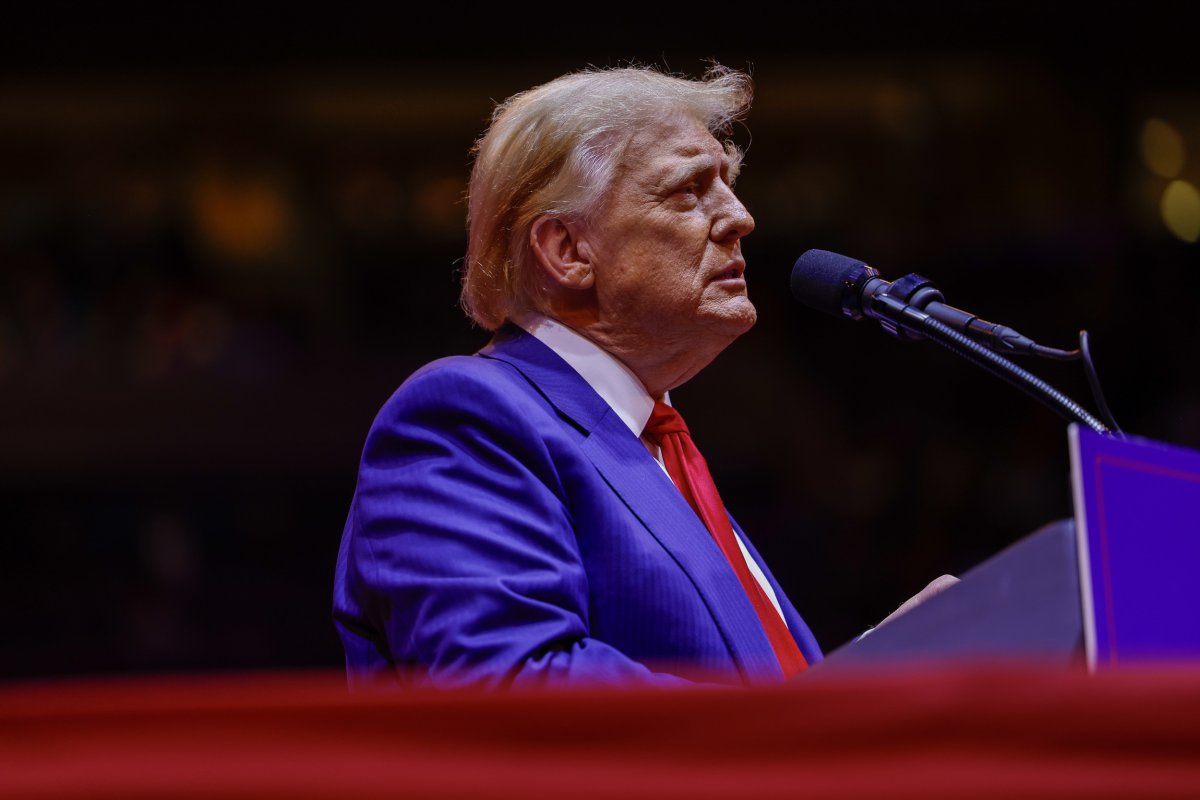Friday marks a critical test for House Speaker Mike Johnson as Republican holdouts deliberate on whether to support his bid to retain the gavel in the next Congress or push the GOP into another chaotic round of voting.
Johnson (R-La.) appears optimistic, at least publicly, while working behind the scenes to shore up support. He’s been meeting with hesitant Republicans and highlighting his recent endorsement by President-elect Donald Trump.
“I think we get it done on the first round,” Johnson said Thursday on Fox Business. “I’m certainly hopeful for that, because, as we noted, we’ve got to stick together. We’ll be operating with the smallest margin in U.S. history for much of the first 100 days of the Congress, and perhaps longer into the year.”
He added, “Look, I’m a proven fighter, I’m a MAGA conservative, but I’m also someone who can get everyone in that broad array that we have in the House GOP to work together, and that’s what’s necessary in the days ahead.”
However, not everyone shares Johnson’s optimism.
“He doesn’t have the votes — which isn’t a secret,” a House GOP aide told The Post, predicting Johnson could fall short in the first round of voting on Jan. 3.
As of now, Rep. Thomas Massie (R-Ky.) is the only Republican who has publicly opposed Johnson’s bid. Still, with at least six members undecided—including Reps. Andy Biggs (R-Ariz.), Victoria Spartz (R-Ind.), Andy Harris (R-Md.), Chip Roy (R-Texas), and Tim Burchett (R-Tenn.)—Johnson faces an uphill battle. He can only afford to lose one vote.
Johnson’s critics have grown louder following last month’s government spending disagreements. One GOP aide described Johnson’s initial spending proposal as “a disaster” that was “full of Democrat wins.” While Johnson eventually trimmed the 1,500-page bill to a 118-page version, hardline Republicans remained dissatisfied.
Despite these challenges, several GOP aides remain optimistic Johnson will ultimately secure the speakership, although they acknowledge it could take multiple rounds of voting.
The process recalls Kevin McCarthy’s grueling 15 rounds of voting in January 2023. Johnson was unanimously elected speaker later that year in October after McCarthy’s ouster. Currently, no viable alternative candidates have emerged who could unite enough Republicans.
Under House rules, a speaker must secure a majority to clinch the position. With Republicans holding 219 seats, Democrats 215, and one vacancy expected (former Rep. Matt Gaetz’s seat), Johnson needs 218 votes. The threshold could shift depending on absences or members voting “present.”
Democrats, meanwhile, are unified against Johnson. Former House Speaker Nancy Pelosi, still recovering from hip surgery, has returned to Washington to ensure every Democrat attends the vote. House Minority Leader Hakeem Jeffries made it clear, “There will be no Democrats available to save him—or the extreme MAGA Republicans—from themselves.”
Johnson’s campaign has also faced opposition from within the GOP. Hardline Republicans and some Senate conservatives have criticized him for his role in advancing Ukraine aid and reauthorizing the Foreign Intelligence Surveillance Act (FISA).
“Conservatives should remember Speaker Mike cast the deciding vote to allow a secret court (FISA) to search American records without a warrant and to send $60 BILLION to Ukraine. Pathetic,” Sen. Rand Paul (R-Ky.) said.
Despite these headwinds, Trump has thrown his weight behind Johnson, calling his endorsement “complete” and “total.” However, he stopped short of lobbying lawmakers directly, saying, “He’s the one that can win right now. People like him. Almost everybody likes him. He’s a good man. He’s a wonderful person. And that’s what you need.”
Whether these efforts will be enough remains to be seen when the House reconvenes on Friday.
 Telegram is where we really talk. Don't miss out!
Telegram is where we really talk. Don't miss out!







